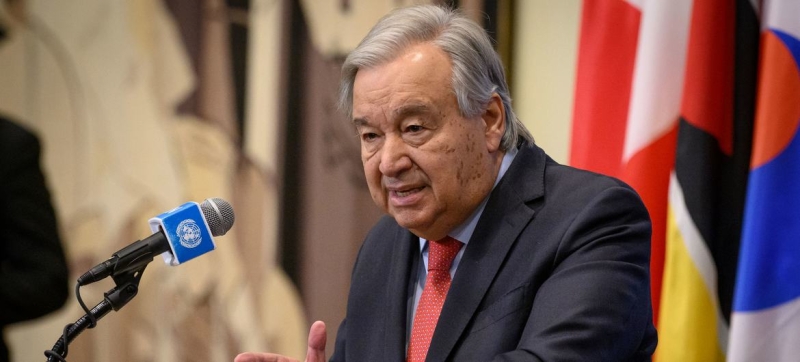
UN Secretary-General António Guterres. Secretary-General outlines key areas of work for UN field coordinators UN
Despite the divisions and difficulties the world faces, there are signs of hope, the United Nations Secretary-General said Monday at the annual global meeting of UN Resident Coordinators.
“When we met last year, just a few weeks had passed since the conflict in Gaza began following the horrific attacks of 7 October,” António Guterres said. “I asked you then to ‘keep nerves of steel’. This year has been even more brutal than the last, with the consequences of wars, conflicts and violence being felt around the world.”
To date, the UN chief recalled, less than one-fifth of the Sustainable Development Goals have been achieved. Each country faces its own unique set of crises, from the high cost of living to the devastating effects of climate change, unsustainable debt burdens and problems with the global financial architecture, which does not provide adequate support to developing countries. The rapid development of technology – in particular artificial intelligence – is happening without control.
Despite the differences and difficulties the world faces, UN member states have found a way to unite at the General Assembly
“But in the midst of these serious challenges, we see some signs of hope,” António Guterres continued. “Despite the divisions and challenges the world faces, UN Member States have found a way to come together at the General Assembly. The Pact for the Future paves the way for reforms to revitalize the multilateral system. It is the most ambitious international agreement in many years, with provisions that respond to the needs of every Member State.”
The Secretary-General then elaborated on four key areas where Resident Coordinators can make a significant contribution.
The SDG Financing Gap
“First, help host governments close the SDG financing gap,” said António Guterres. “Almost 80 percent of countries surveyed said the UN system had played a key role in strengthening the capacity of public institutions to accelerate progress on the SDGs. But moving forward, we must focus on the biggest obstacle – financing.”
Resources are few and far between in developing countries, the UN chief reminded. More international and domestic financing is needed to finance the SDGs. The global financial architecture is failing to provide developing countries with the support they need.
Climate ambition
Second, according to the Secretary-General, it is necessary to help governments increase their climate ambitions. The upcoming UN climate conference marks the deadline for submitting the next round of Nationally Determined Contributions, which set out how countries will reduce greenhouse gas emissions.
“With just 14 months to go until COP30, we need all countries to deliver commitments consistent with limiting global warming to 1.5 degrees Celsius,” António Guterres said. “They must cover greenhouse gases, all sectors and the entire economy.”
Controlling technology
Third, the Secretary-General continued, there is a need to help governments develop policies and laws that will enable them to control technology.
“The potential benefits of digital technologies and artificial intelligence are clear,” he said, “but transformation must be fair, just and secure. Country teams must help governments maximize investment in projects that can scale up technologies, build skills and capacity, and build a digital public infrastructure that can drive economic growth.”
